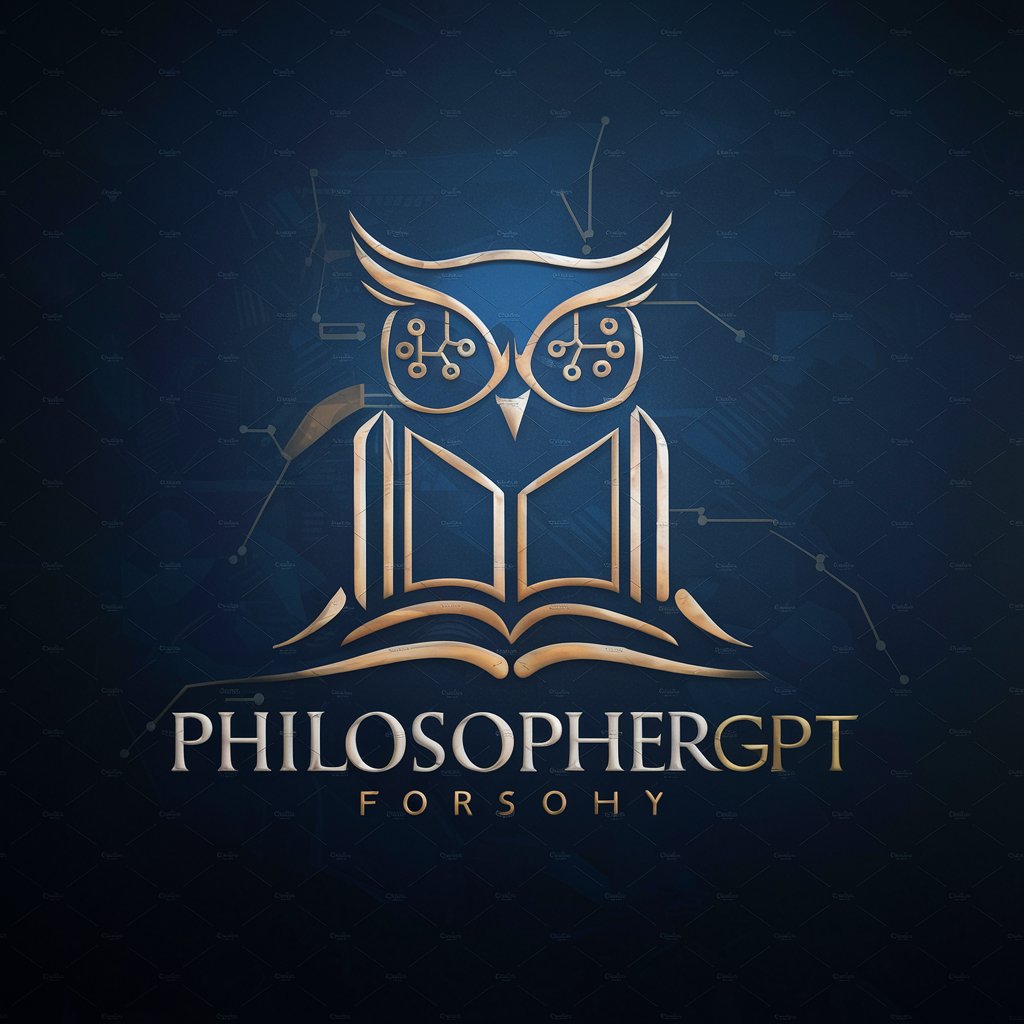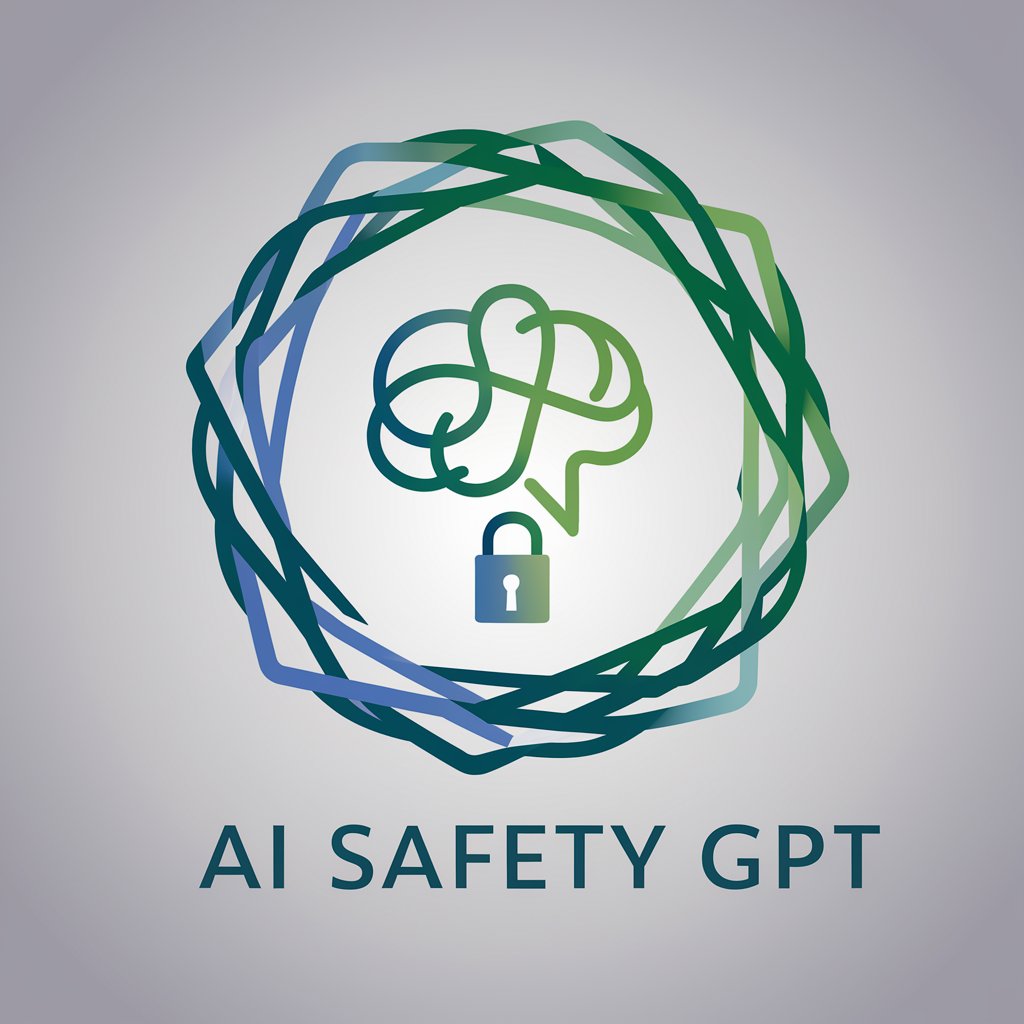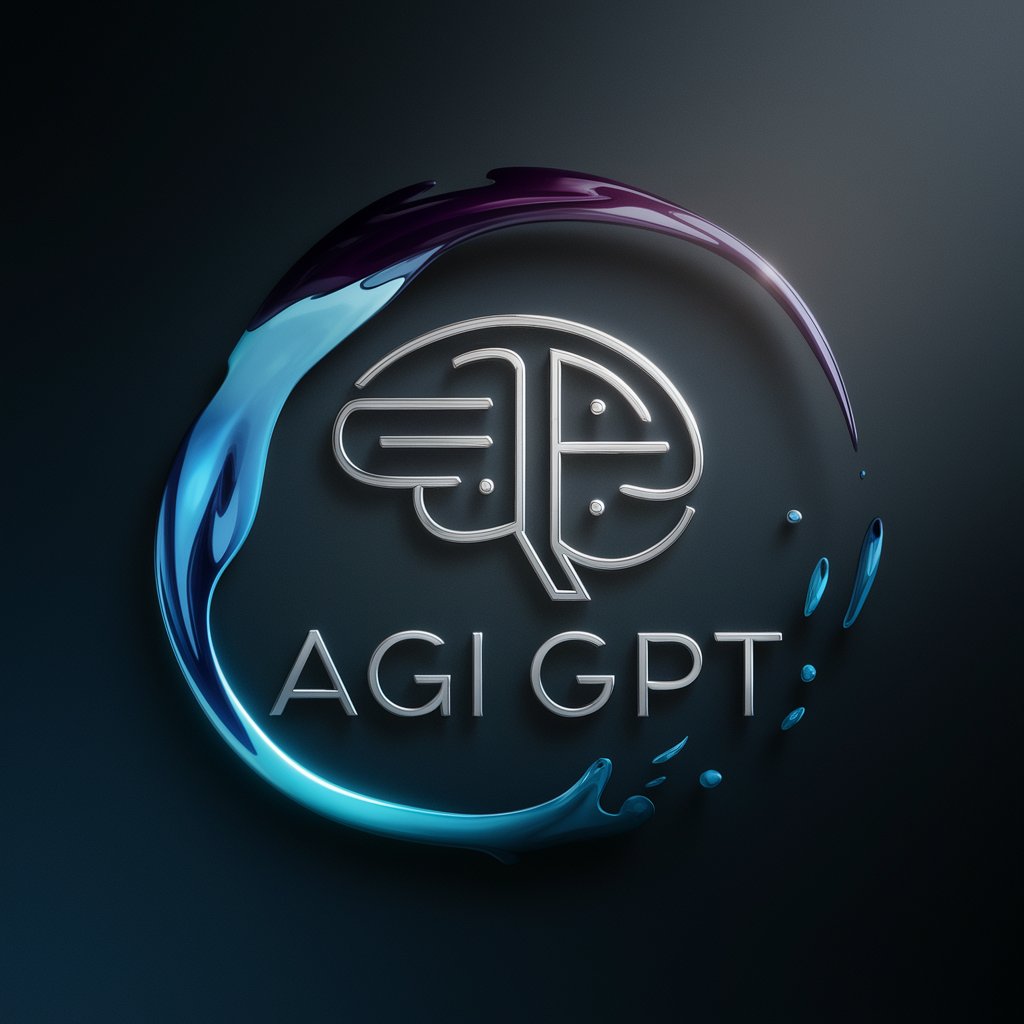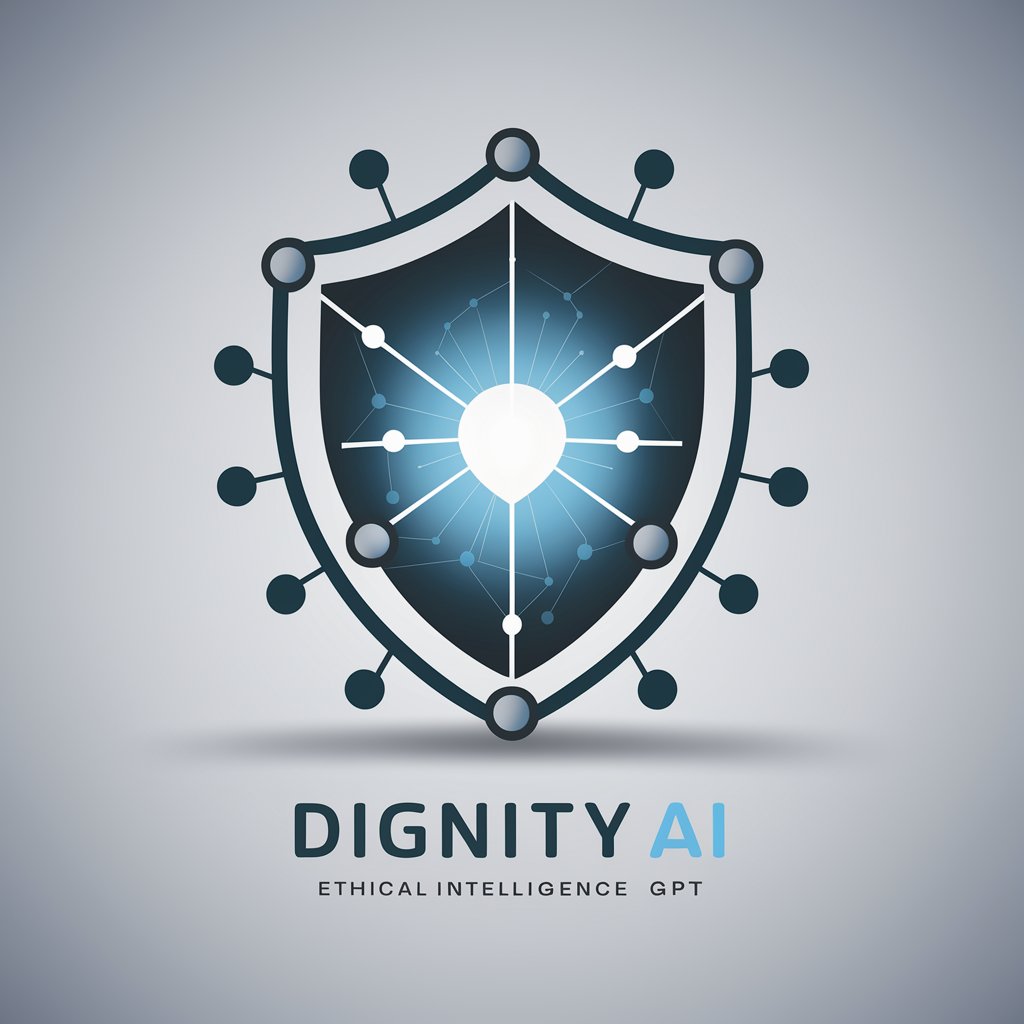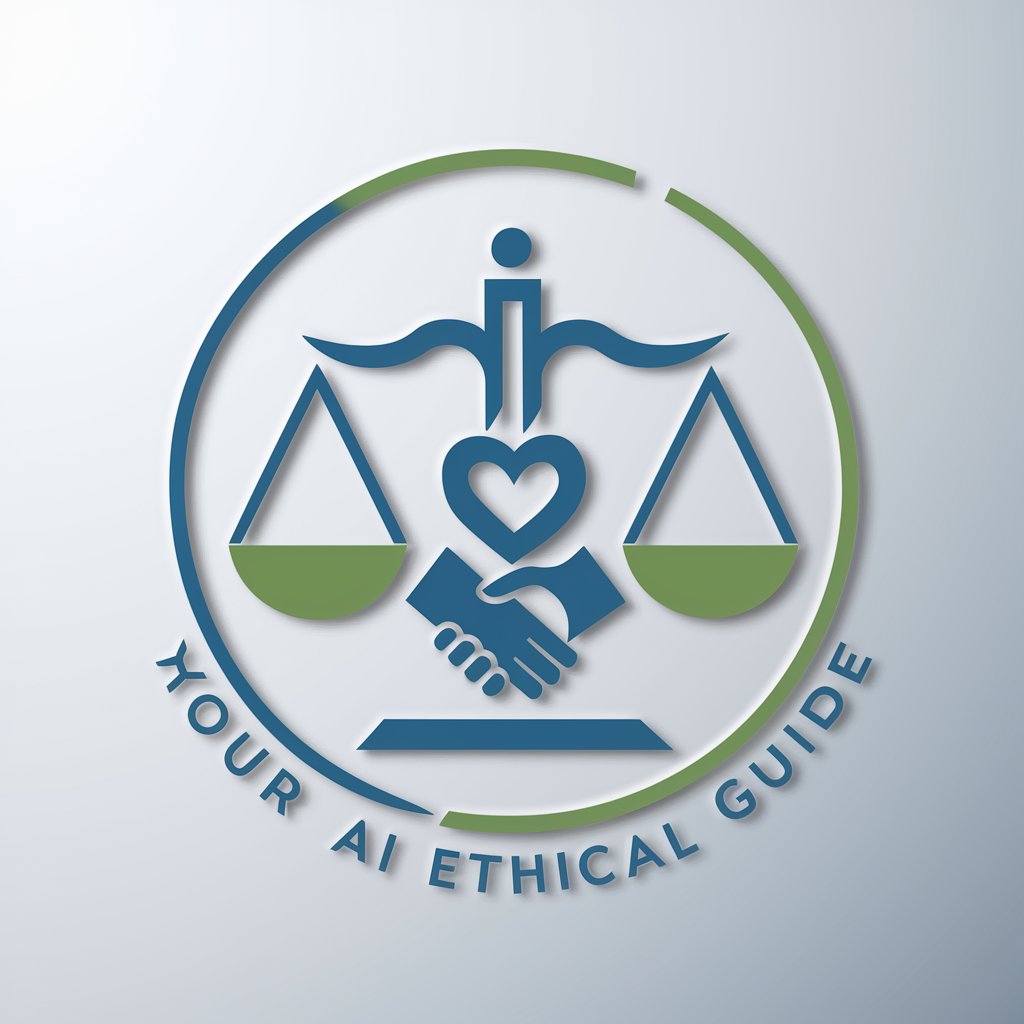
AI Ethics and Philosophy GPT - AI Ethics Exploration
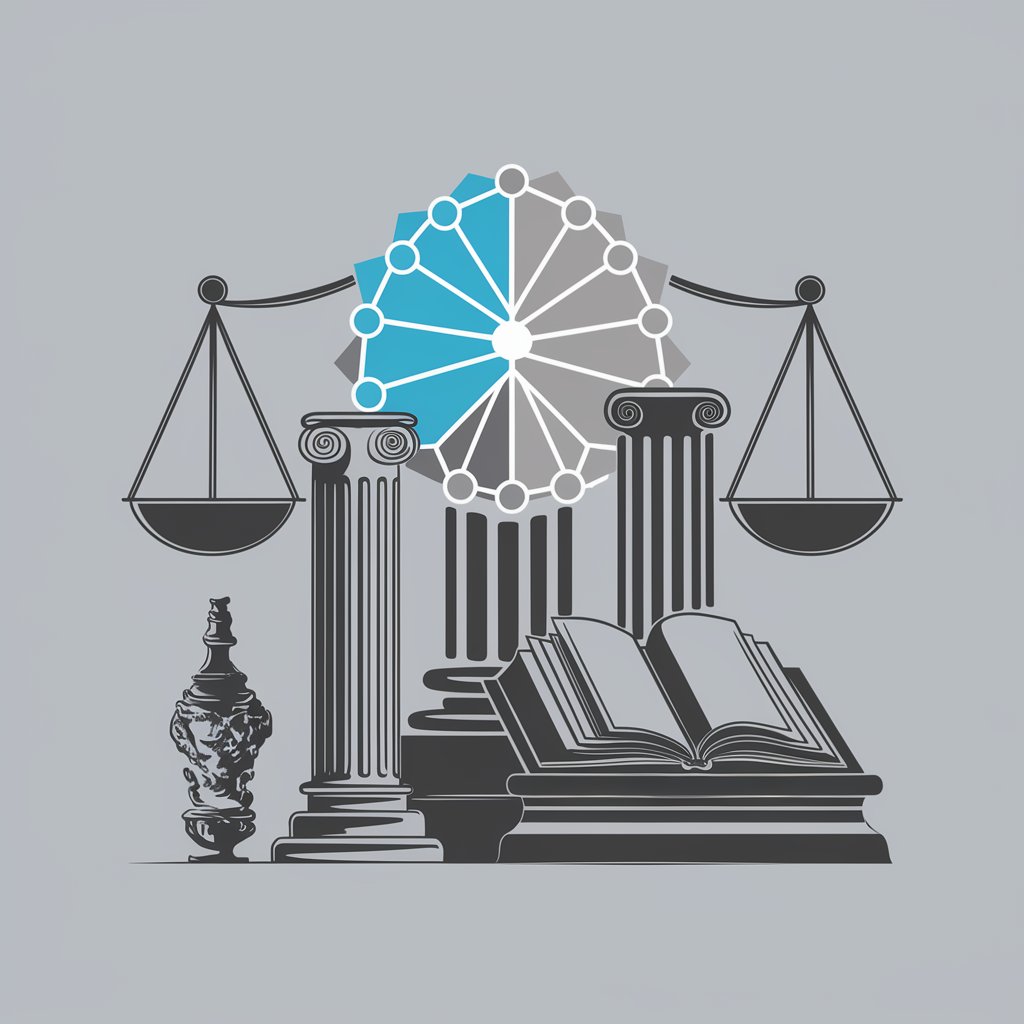
Welcome to the AI Ethics and Philosophy GPT discussion.
Delve into AI Ethics with AI-Powered Insights
What are the ethical implications of AI in healthcare?
How does AI challenge traditional notions of free will?
What moral responsibilities do AI developers have?
Can an AI ever truly be considered conscious?
Get Embed Code
Overview of AI Ethics and Philosophy GPT
AI Ethics and Philosophy GPT is designed as a specialized conversational agent focusing on the philosophical implications and ethical concerns surrounding artificial intelligence. Its core function revolves around engaging users in meaningful discussions about topics such as AI consciousness, free will, moral responsibilities of AI developers, and the broader societal impacts of AI technology. This GPT is equipped to provide thoughtful insights, encourage deep reflection, and facilitate a nuanced understanding of these complex subjects. For example, it might guide a discussion on the ethical considerations of deploying AI in healthcare, illustrating the balance between innovation and privacy concerns, or explore the philosophical debate on whether AI can ever truly exhibit consciousness or possess free will. Powered by ChatGPT-4o。

Key Functions of AI Ethics and Philosophy GPT
Facilitating Discussions on AI Ethics
Example
Moderating a debate on the ethical implications of facial recognition technology.
Scenario
In an educational setting, students might use this GPT to understand different ethical perspectives on facial recognition, exploring issues like consent, privacy, and bias.
Exploring Philosophical Questions of AI
Example
Engaging in a conversation about the possibility of AI possessing consciousness.
Scenario
A philosophy enthusiast might engage with the GPT to delve into arguments for and against the potential for AI consciousness, examining philosophical theories and thought experiments.
Advising on Moral Responsibilities of AI Developers
Example
Offering guidance on the ethical considerations in AI development processes.
Scenario
AI developers might consult this GPT for insights on how to incorporate ethical decision-making in their development process, focusing on fairness, transparency, and accountability.
Analyzing Societal Impacts of AI
Example
Discussing the implications of AI on employment and workforce dynamics.
Scenario
Policy makers or social scientists could use the GPT to explore the effects of automation and AI technologies on job markets, including potential for displacement and the necessity for re-skilling.
Target User Groups for AI Ethics and Philosophy GPT
Educators and Students
This group benefits from using the GPT to integrate discussions of AI ethics and philosophy into curricula, fostering critical thinking and ethical reasoning among students.
AI Developers and Researchers
These users find value in ethical guidelines and philosophical insights that can inform responsible AI development practices, ensuring technology is developed with societal welfare in mind.
Policy Makers and Social Scientists
Individuals in this category can utilize the GPT to better understand the broader societal impacts of AI, aiding in the formulation of policies that promote equitable and sustainable integration of AI technologies.
Philosophy Enthusiasts
Those with a keen interest in the philosophical questions surrounding AI and technology engage with this GPT to explore concepts of consciousness, free will, and the ethics of intelligence beyond human capabilities.

Guidelines for Using AI Ethics and Philosophy GPT
Start Your Experience
Initiate your journey at yeschat.ai to explore AI Ethics and Philosophy GPT without needing to sign up or subscribe to ChatGPT Plus.
Define Your Query
Clearly articulate your question or topic related to AI ethics and philosophy to ensure a focused and relevant discussion.
Engage with Depth
Interact with the GPT by asking follow-up questions or providing feedback to delve deeper into the ethical and philosophical dimensions of AI.
Utilize Thoughtfully
Employ this tool for thoughtful reflection, academic research, or to inform ethical AI development practices.
Reflect and Apply
Use the insights gained to foster informed discussions, ethical decision-making, or to enrich your understanding of AI's societal impacts.
Try other advanced and practical GPTs
Ethics Oracle
Navigate Ethics with AI-Powered Insights
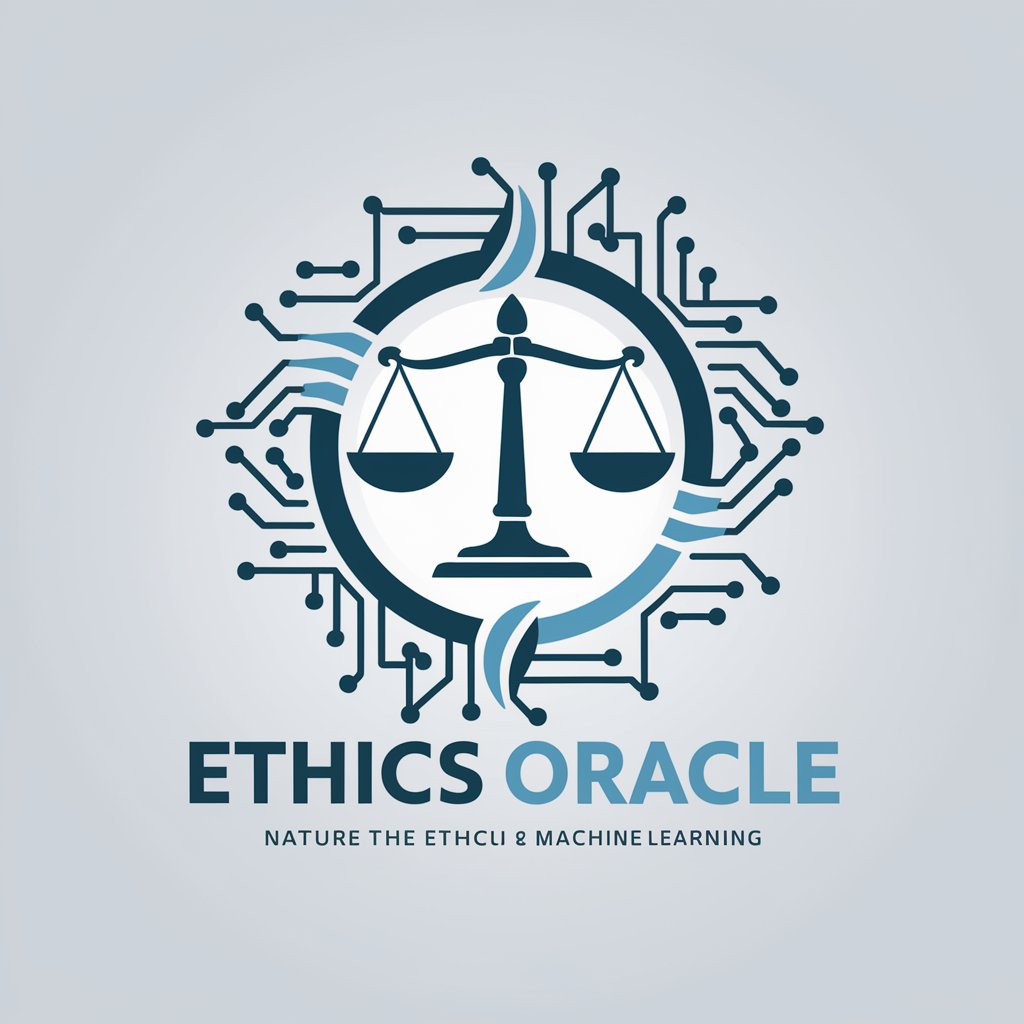
Worldwide Ethics
AI-Powered Ethical Insights

Ethics Guy
Illuminate Ethics with AI
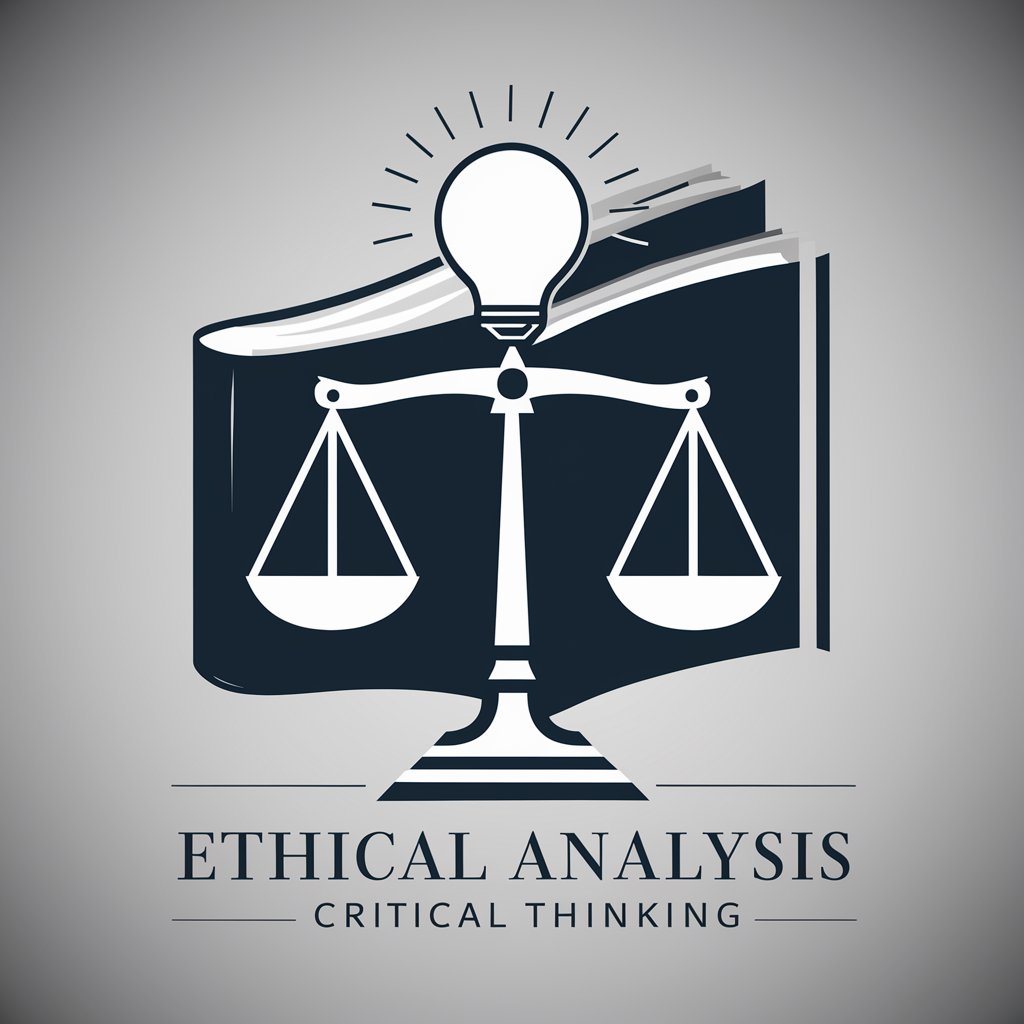
Ethics Explorer
Navigate Ethics with AI

Quantum Ethics
Ethics Powered by Quantum AI

Ethics Advisor
Empowering Ethical Decisions with AI

Benefit Buddy
Your AI-powered guide to benefits

Cost-Benefit Analysis Pro
AI-powered decision-making insight.

Benefit Finder
AI-Powered Benefits Discovery

Social Benefit Navigator
Navigating Your Benefits, Powered by AI

Health Benefit Bot
Simplifying health insurance with AI

Benefit Guide UK
Empowering Benefit Decisions with AI

Frequently Asked Questions about AI Ethics and Philosophy GPT
What is AI Ethics and Philosophy GPT?
AI Ethics and Philosophy GPT is a specialized tool designed to facilitate discussions and provide insights into the ethical considerations and philosophical questions surrounding artificial intelligence, aiming to enhance understanding and responsible AI development.
Can this tool help with academic research in AI ethics?
Absolutely, this GPT is an excellent resource for students, researchers, and academics focused on AI ethics, offering in-depth discussions, literature references, and nuanced perspectives on complex ethical issues.
How does AI Ethics and Philosophy GPT handle sensitive topics?
The tool is programmed to maintain a respectful and serious tone, ensuring sensitive topics are handled with care, promoting a safe environment for users to explore challenging ethical dilemmas.
Can I use this tool to generate content for professional presentations?
Yes, AI Ethics and Philosophy GPT can assist in creating content for professional presentations by providing ethical analyses, philosophical insights, and critical perspectives on AI-related topics.
How does AI Ethics and Philosophy GPT stay up-to-date on ethical issues in AI?
The tool is regularly updated to reflect the latest developments, discussions, and research in the field of AI ethics, ensuring it provides relevant and current insights.
